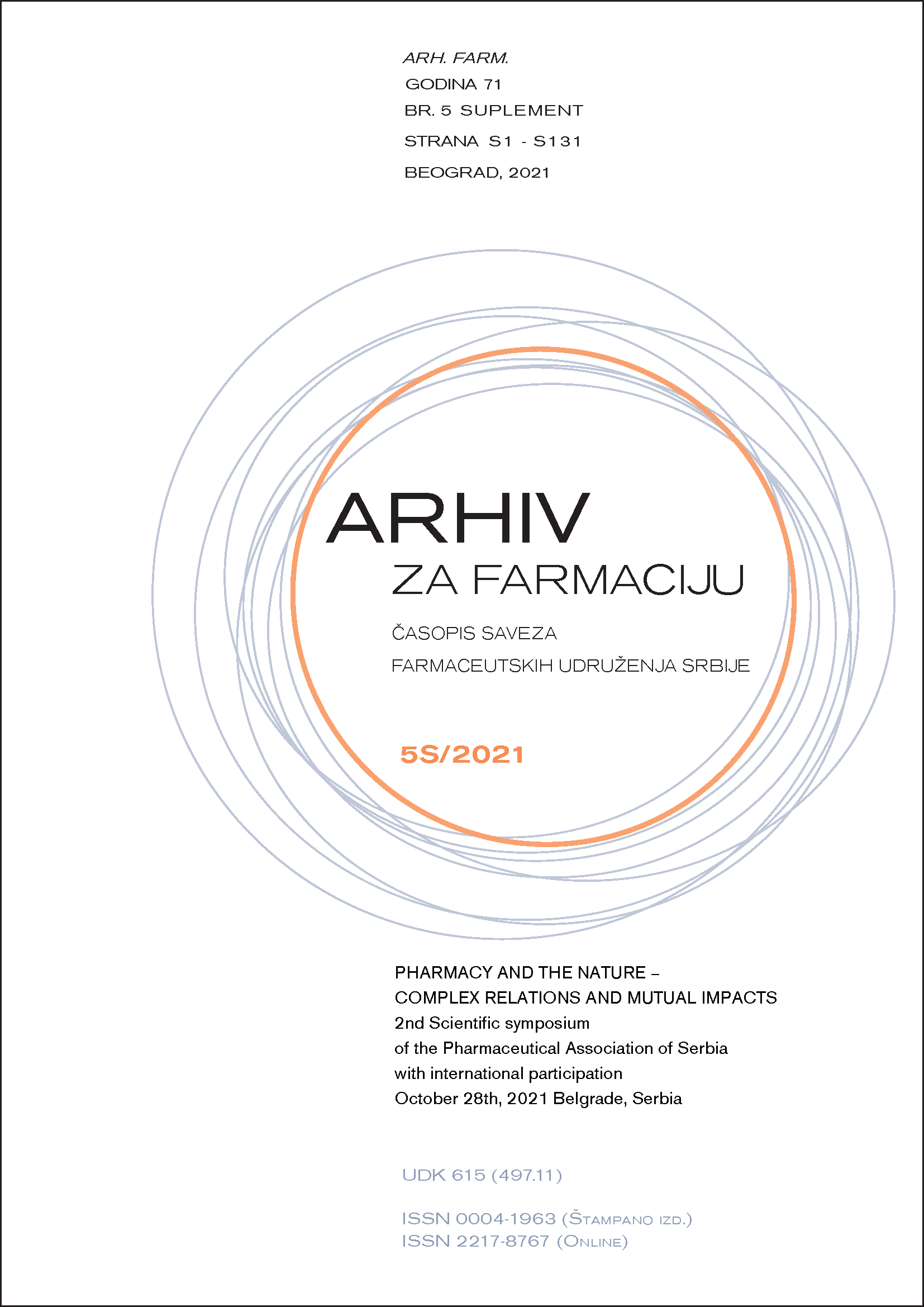GREEN PHARMACY - RECOMMENDATIONS FOR PHARMACY PRACTICE IMPROVEMENT
Abstract
Drug residues isolated from environment, such as soil and water, pose a direct threat to human and animal health, and appropriate regulations have been adopted at the European Union level to reduce and control pollution caused by drugs (1, 2). Accordingly, numerous professional debates have been initiated related to pharmacists’ professional responsibility. As a result, international professional associations of pharmacists have made recommendations for taking specific professional activities to protect the environment from the harmful effects of drugs, which will directly contribute to the implementation of adopted regulations (2, 3).
Among the most important recommendations for improving pharmaceutical practice to contribute to green pharmacy are as follows: (i) taking actions to increase the public awareness on the prudent use of medicines and pharmaceutical waste collection, (ii) developing guidelines and information materials for healthcare professionals on the prudent use of pharmaceuticals, (iii) exploring the inclusion of environmental aspects for pharmaceuticals posing a risk to or via the environment in the pharmacy education and continuous professional development programs, (iv) developing and ensuring compliance with environmental quality standards for pharmaceuticals as a measure to promote greener manufacturing, (v) ensuring appropriate funding of pharmacy-led disposal and collection schemes for medicines, (vi) reducing pharmaceutical waste caused by leftover medicines by ensuring that systems are in place that encourage the prescription and dispensing of quantities of certain risk medicines in package sizes matching the duration of treatment, (vii) supporting the development of environmentally friendly practices and sustainability policies in pharmacies.
There are numerous examples of good practices in European countries in pharmaceutical waste management. Among them are numerous examples of programs to improve citizens' awareness of the importance of returning unused or expired drugs to pharmacies, i.e. on dangers to the environment and public health if medicines are disposed with communal waste. In addition, there are many examples of good organization of pharmaceutical waste management, which emphasize the importance of cooperation between different stakeholders (i.e. pharmacies, pharmaceutical industries, distributors) and support of municipalities and national government.
Adherence to adopted regulations for pharmaceutical waste management, and the recommendations of professional associations to improve pharmaceutical practice in the light of green pharmacy, with examples of good practice from developed countries, represents the basis of the pharmacists’ professional responsibility in the context of environmental protection from drug pollution.

